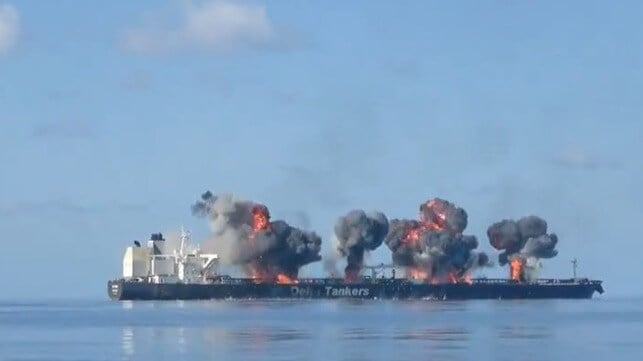Houthis Publish a "Safety FAQ" for Red Sea Shipping

The Houthi administration in Yemen has updated its Frequently Asked Questions (FAQs) page, which purports to give detailed advice on how to avoid the group's attacks in the Red Sea and Gulf of Aden.
The Houthi advice is contained on a website maintained by the Humanitarian Operations Coordination Center (HOCC), the front organization used by the Houthis to add legitimacy to their threats and attacks on shipping. The website is extremely professional in its presentation, markedly more so than many websites maintained by legitimate governments in the region. This presentation potentially can persuade visitors to the site that the Houthi demands are authentic and legitimate.
While UKMTO, the leading trusted authority in the maritime security sector offers excellent industry-led advice to mariners, no specific advice is offered on whether masters approaching the Red Sea and Gulf of Aden danger area should interact with the HOCC or comply with its requirements; this is left to the discretion of masters.
The HOCC FAQs invite mariners to communicate with them, and the page provides a number of channels for doing so. They invite shipowners to submit a Safe Transit Requests for clearance 48 hours in advance, in which the ship name and passage details must be specified. Any communication with the HOCC is likely to alert the Houthis to the detail of a potential entry into the danger area, thereby giving the opportunity to the Houthi to research the background of the ship as a potential target, and to plan an attack. Western operators may also think twice about the optics of engaging with a U.S.-designated foreign terrorist organization, even if funds do not change hands.
The FAQs refer to ships that have been banned by the Houthis, who claim to have sent “pre-penalty notices” by email to 64 owners who they say have “violated” its “blockade” of Israeli ports. No list of the 64 ship-owners concerned has been released, only an associated list of 15 US defense companies. In theory, owners can also use a database search engine on the HOCC site to discover if their ship is on the banned list. There is no assurance, however, that the Houthis have used the correct contact details to warn ship owners, or that the database search engine will give accurate answers to a particular query.
Additionally, one can become a “legitimate” Houthi target on a secondary sanctions basis, if one communicates unaware with someone who is on the undisclosed banned list. Again, interfacing with the HOCC website will alert the Houthis to a potential target, and an absent or negative response provides no assurance that the Houthis will deem a particular ship to be safe or a target.
For ships making transits through the danger area, the HOCC FAQs advise masters to keep AIS information up to date (including next port of arrival data in UNLOCODE), keep emergency VHF Channel 16 open, to respond to Houthi challenges, to remain in recognized shipping channels and to avoid military vessels. All these actions will potentially provide targeting and vector data to the Houthis.

that matters most
Get the latest maritime news delivered to your inbox daily.
Lloyds List Intelligence identified 944 Red Sea transits in July, a depressed traffic flow little changed in recent months. Those at risk may seek safe passage by taking other routes, or by coordinating with naval forces for protection, when and if available.
“The recently-introduced Houthi HOCC tool and accompanying FAQ service should not be relied upon as a substitute for formal, professional risk assessments,” warned maritime risk consultancy Vanguard Tech on Thursday. “The service is more likely a strategic move aimed at legitimizing Houthi authority over Yemeni waters and shaping maritime narratives in their favor. Using such a resource in place of independent intelligence and vetted analysis could expose companies and operators to incomplete, biased, or misleading information, ultimately increasing risks for vessels transiting the region.”
